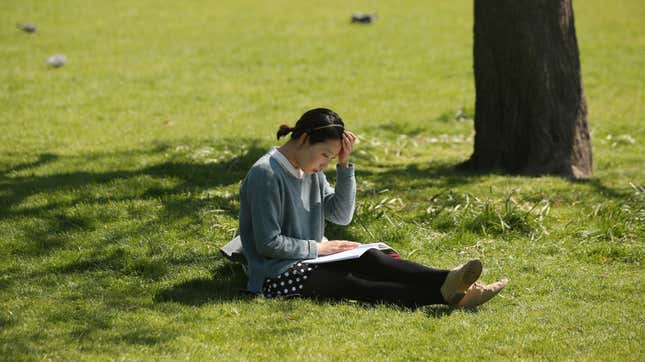Summer Reading: Quashing End-of-Summer Panic With Media Histories and Costumed Mysteries
In Depth

Every year, I begin summer with lots of grand plans for all the wonderful things I’m going to read outside in the perfectly burning sunshine, or perhaps inside during a picturesquely torrential thunderstorm. I imagine late nights with page turners and slow afternoons with thought-provoking tomes. But not long after July 4th, the mood shifts, and my reading becomes downright panicked: I’m grabbing books practically at random, with no thought to strategy, because it’s the August reckoning and I can feel the end of summer approach. Essentially, I’ve gone into Supermarket Sweep mode, if there were a bookstore edition.
My friends, today I must sadly report that I have entered the frantic phase of summer reading.
Yes, I understand that this undermines the purpose of “reading for fun.” I even understand that winter, the season I’m dreading, is probably a better time for reading, since I won’t be dedicating large chunks of my weekends to the public pool. Nevertheless, I am caught in a spiral!
-

-

-

-

-

-

-

-

-

-

-

-

-

-

-

-

-

-

-

-

-

-

-

-

-

-

-

-

-

-

-

-

-

-

-

-

-

-

-

-








































